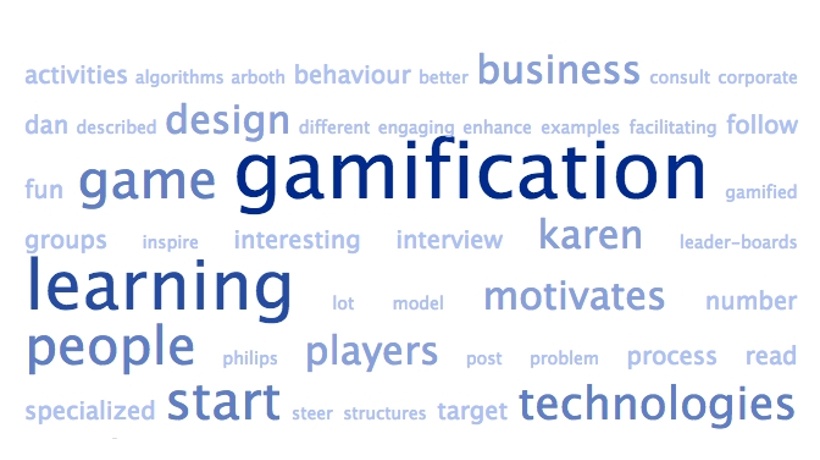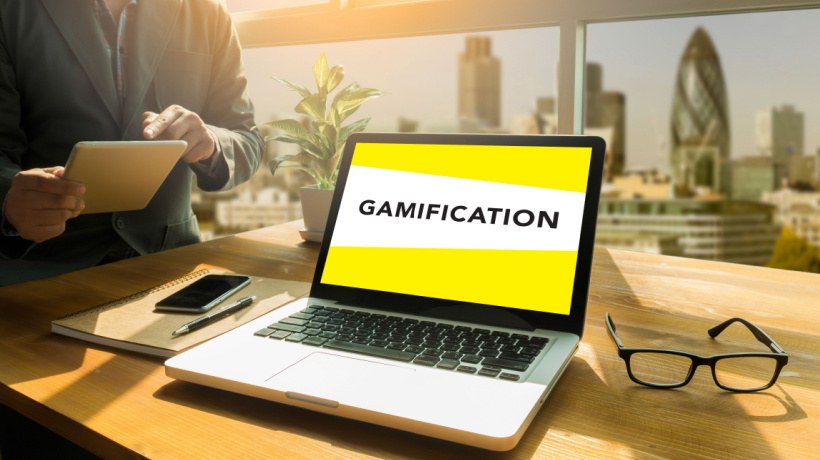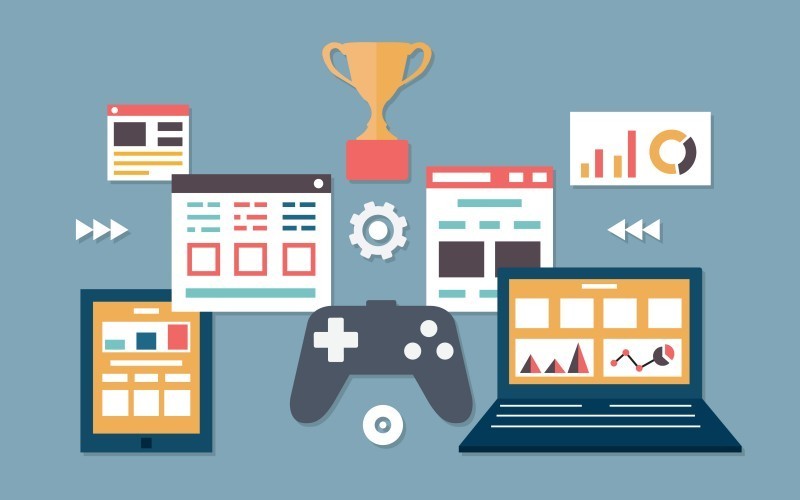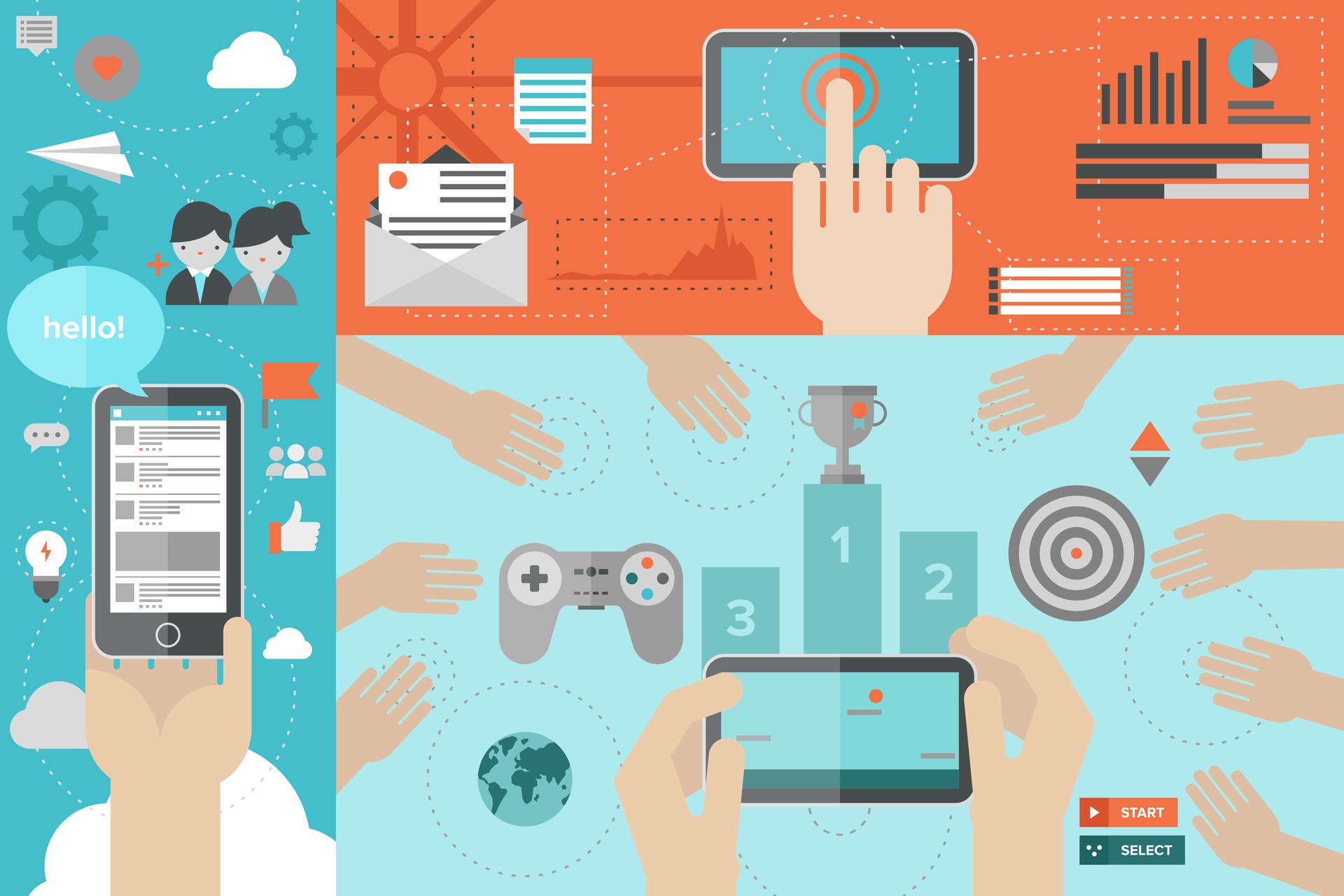Intrigued by my recent experiments with gamification at the dinner table? Not sure where to start? Read this post for a step-by-step introduction…
The Gamification Of Learning: 32 Tweets To Get You Started
During a recent Twitter interview with Karen Philips, L&D Consultant from Arboth Learning Technologies in Belgium, I discussed her new-found interest in the gamification of learning and her insights on how to get started well. Created from the 32 tweets we shared over several days, this post is designed to get you thinking about the right things when you start on your journey towards gamification success…
Why did you decide to make a real effort to study gamification?
This topic started growing on my since ASTD2012. As a pedagogue I think learning should be fun and accessible to everyone cc @kwerb.
Apart from fun and accessibility, what are the benefits of gamification?
By "tapping into emotions" and engaging people to learn you get behaviour change and better business results!
When faced with a business performance or learning need, how can you know gamification is the right approach to adopt?
Define "right":-) IMO, when you encounter an engagement issue or when you want to enhance social interactions, gamification is an option.
You said gamification "taps into people's emotions". How does it do that?
Game players are often taken into a meaningful experience. Read the about the “4 Keys of Fun” by @nicolelazzaro.
Sold! So, if I wanted to get started with the gamification of a learning initiative, what would be the best first step?
Do you know your goals already? What do you want to achieve exactly? Who is your target group? What time do you have? Budget?
To wrap this up: Kevin Werbach & Dan Hunter described a 6D-model to start designing. Read the book - "For the Win: How Game Thinking Can Revolutionise Your Business"
Is there anything special to look out for when "describing players", in order to succeed with gamification? (6D model)
Ask yourself "what (de) motivates my players? Appeal to different groups in different ways (segmentation).
Now that I know what motivates my learners, what's the next step for gamification? How should I start my game design?
Firstly, I would first look at these game design rules based on @staroversky. They are the basis of a good game.
Then look at game dynamics, elements & components. It gives you an overview of what is possible.
You mentioned @kwerb a few times in this interview. Who are the other gamification experts people should consult?
Danger of forgetting someone, but here I go. These people inspire me: @amyjokim @gzicherm @NicoleLazzaro @avantgame @daverage
What are your favourite examples of gamification in any domain ...could be learning or other areas. Why?
I like real life examples of gamification without lots of technology, leader-boards and badges that really go for impact, like thefuntheory.
To end the interview: What are your top tips for being successful with the gamification of learning?
Here are my last 3 tips inspired by Kevin Werbach's Coursera on gamificiation.
(They relate to when gamification can really make a change to your business problem)
- Top tip number 1
Set specific goals. Which kind of behavior do you want at the end & ask yourself if your target activities are sufficiently interesting?….target activities? When designing a gamified process, what will people need to do (the activities)? Are they interesting/meaningful? - Top tip number 2
Can the desired behaviours be modelled through algorithms? Make sure the problem you’re handling is not vague, that there is some structure.…algorithms?When your players do A, what will follow as a result (B, C, ...)? How will you reach the desired behaviour in the end? - Top tip number 3
Most of all, will your gamification process be in line with your corporate culture? Can you avoid tension with other motivational structures?...tension with other motivational structures? Let's say your company encourages collaboration. Will a gamified process with leader-boards do? For it mainly enhances competition.
Dan Steer is a freelance trainer living and working in Belgium. He helps people get better at stuff by creating and facilitating infinite learning opportunities. He is a guest speaker at ASTD2013 ICE (session TU306) and has been published in their journal T+D magazine (December 2012) as well as their blog. You can follow him on Twitter @dan_steer or visit his blog: dansteer.wordpress.com
Karen Philips graduated in 2010 as a pedagogue at KULeuven, where she specialized in corporate learning. After 2,5 years working at VOV lerend netwerk, a network of HR-professionals, she has learnt a lot about facilitating groups, conducting learning tracks, putting together and organizing interesting trainings and larger events.
With interests in (e-)learning, education, social media, motivation, gamification and technology, she now gives the best she can at Arboth Learning Technologies, a company specialized in learning technologies providing services to organizations across Europe and the US. Karen is a tremendously enthusiastic professional with an unstoppable energy to achieve results of high quality. Follow Karen on Twitter: @PhilipsKaren








